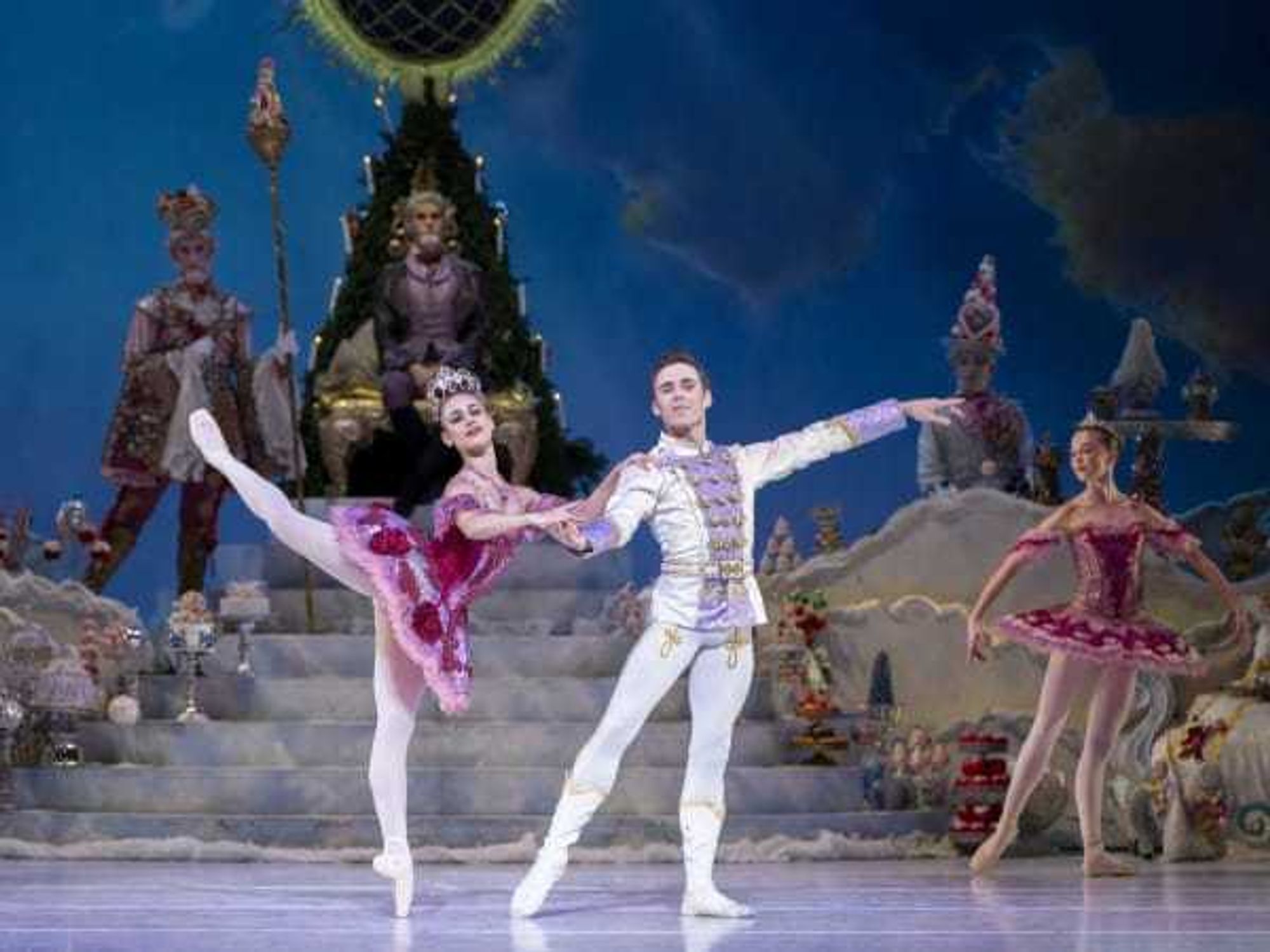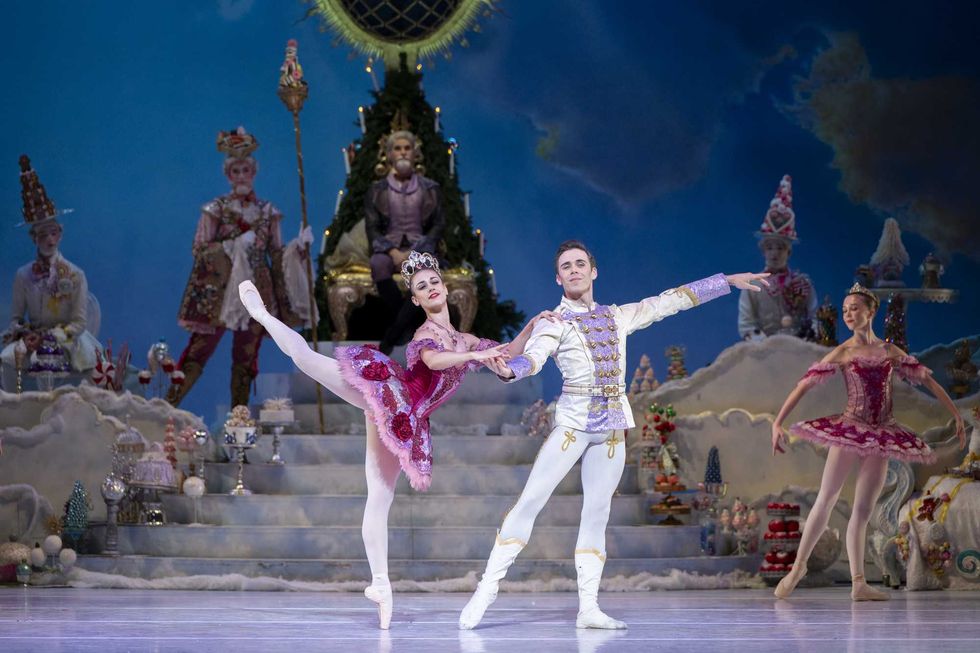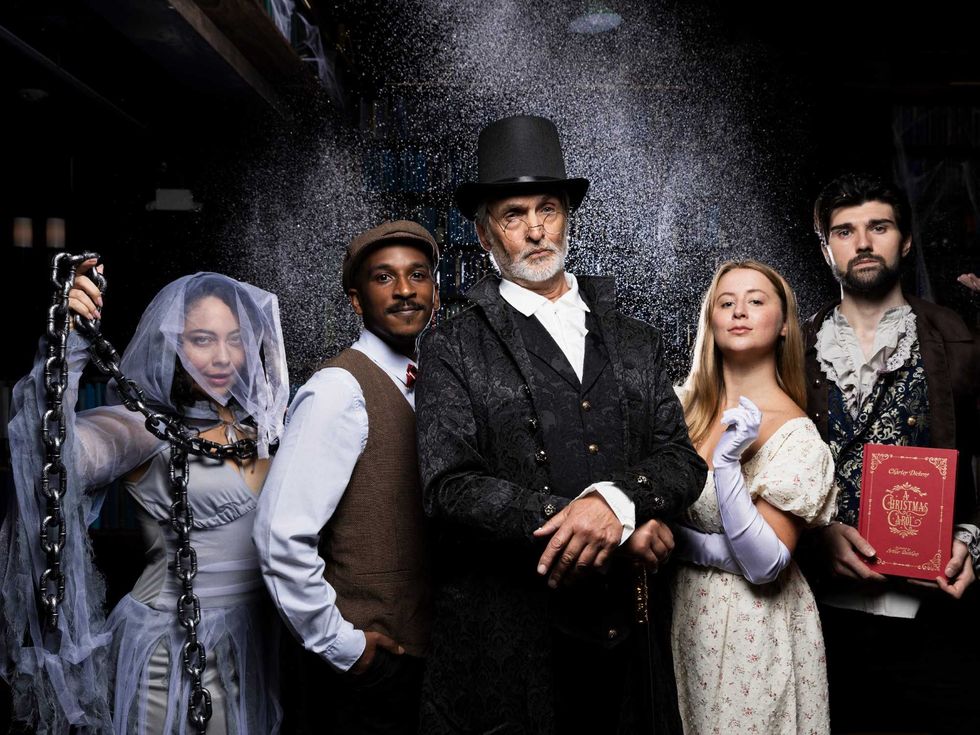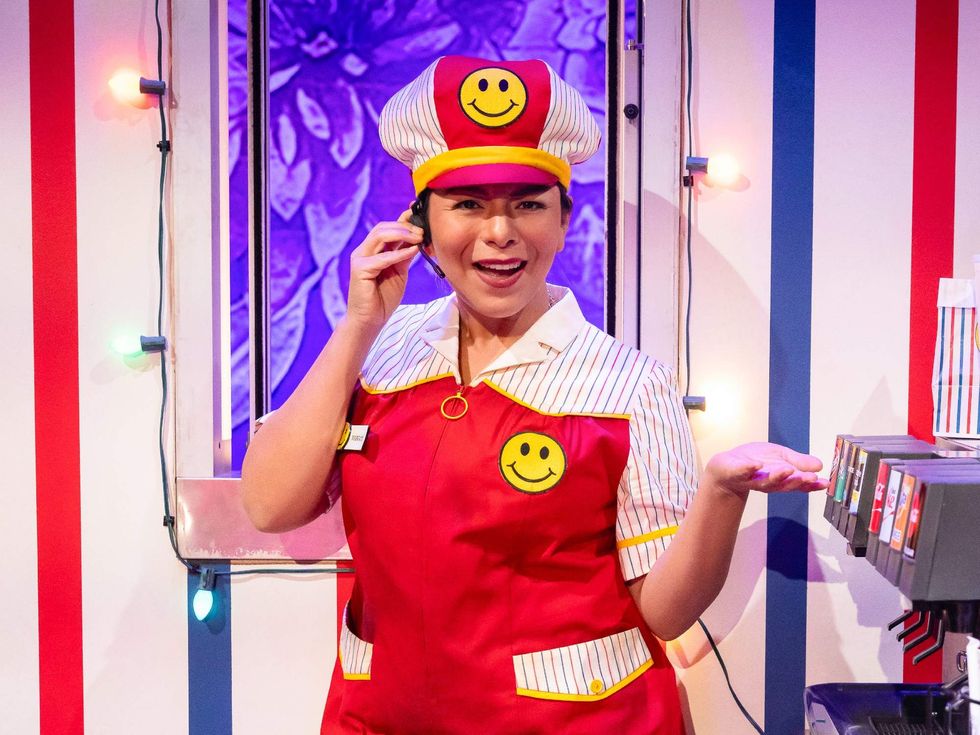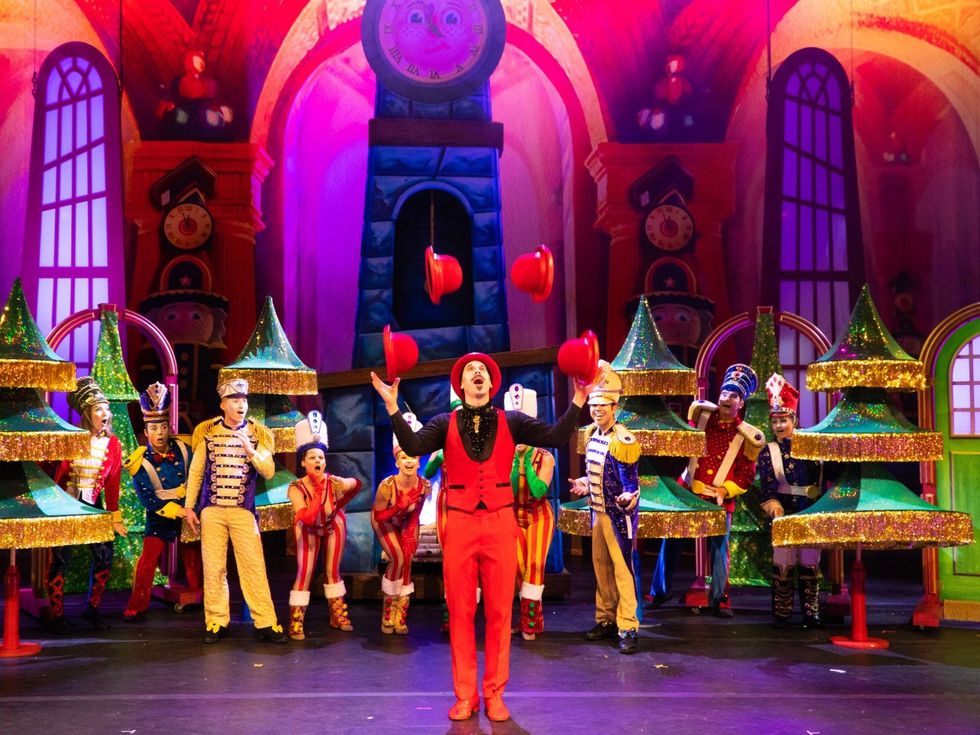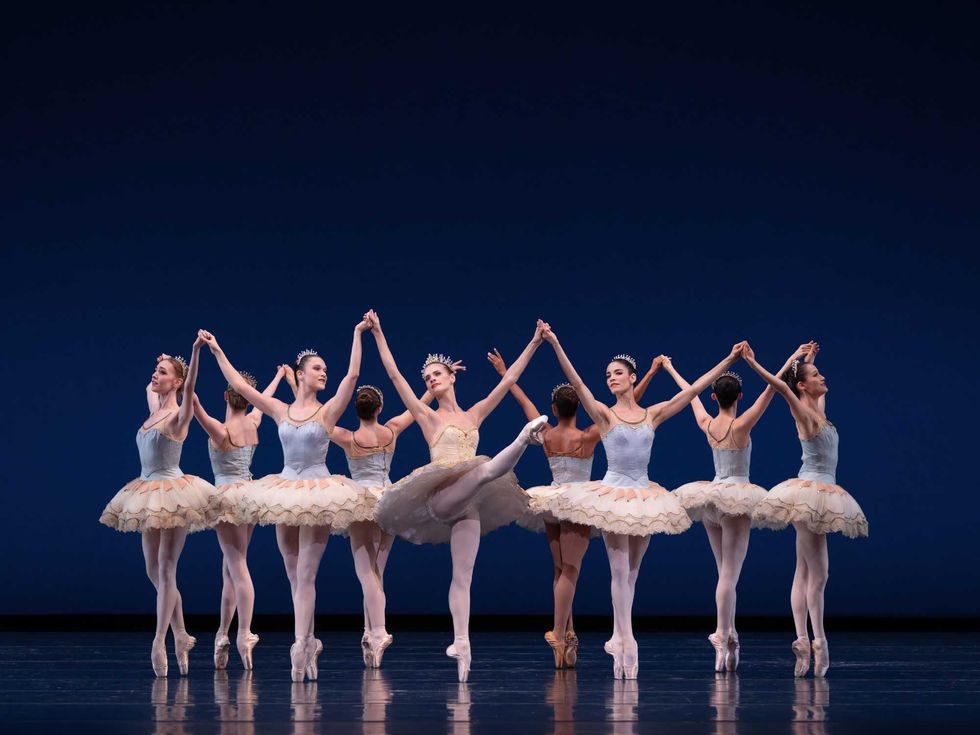The Review is in
Dead Man Walking is a landmark American opera, but is it a great one? StellarHouston cast answers
 Dead Man Walking is an important American opera. The debate is still open onwhether it's a great one.
Dead Man Walking is an important American opera. The debate is still open onwhether it's a great one. I don't love the score of Dead Man Walking, but that may be the composer'spoint.
I don't love the score of Dead Man Walking, but that may be the composer'spoint. Joyce DiDonato gives a thrilling performance in Houston as Sister Prejean.
Joyce DiDonato gives a thrilling performance in Houston as Sister Prejean.
American opera in the late 20th century has no shortage of portentous, politically-charged themes.
Jake Heggie and Terrence McNally’s Dead Man Walking, which premiered in San Francisco in 2000, bisects not only this century and the last, but also opera’s ongoing “collective unconscious.” Years from now, I’ll think of operas as the ones before Dead Man Walking and those that followed. I can’t imagine that I’m the only viewer who was affected by the piece in this manner.
The first few moments of its Houston Grand Opera premiere last night at the Wortham Theater Center were filled with perhaps the most uncomfortable extreme I’ve ever witnessed on the operatic stage: On a highly raked stage, two naked teenagers make love next to a car with its headlights on and radio blaring. Two thugs appear and brutally rape the girl. They murder both the lovers.
Then, suddenly, a calm nun invades the scene, running downstage to greet a chorus of innocent, hymn-singing schoolchildren.
American opera had only been leading in this more verismo direction, perhaps the result of the distancing, esoteric operas of the 1960s and '70s, particularly those coming out of Europe. A prime example is Karlheinz Stockhausen’s Licht (Light), a 29-hour complicated work in seven parts which the composer began in 1977 and didn’t finish until 2003. The audience for such an impenetrable opera is bound to be slim.
In America, the operatic stage turned its attention to current events in myriad ways, slowly gathering a new audience eager to see its own time stated in straightforward musical and dramatic terms. Steve Reich and Beryl Korot wrote about the Hindenburg disaster, nuclear weapons and cloning. John Adams caused controversy with his allegedly pro-Palestinian epic The Death of Klinghoffer. Philip Glass cast Gandhi and Dr. Martin Luther King Jr. in his glorious Satyagraha.
And when American opera wasn’t being dead-serious, it veered towards the comically sublime, as evidenced by John Corigliano’s brilliant The Ghosts of Versailles.
As much as I’m thrilled by an opera that takes on such difficult themes as capital punishment, confession and atonement, and revenge and forgiveness, there is a part of my mind that wants to consider it aside from its subject matter. How did Heggie determine the vocal parts? When should a chorus appear to change the texture? Why didn’t he give us more ensemble singing? Was he delighted or challenged by McNally’s libretto? How did he decide when to shift from major to minor keys?
I don’t love the score of Dead Man Walking, but that may be the composer’s point. As the scenes progress, his musical phrases feel like they are cutting themselves short. There are few formal arias as we know them in traditional opera, and only a few extended explorations of vocal harmony and counterpoint. Sometimes it feels as if everybody is just arguing with each other. The musical fabric takes some getting used to, and after one hearing my brain was fatigued rather than invigorated.
McNally’s libretto is clumsy in places, often feeling like a play set to music rather than a skillful integration of the two. Fragments of spoken dialogue seem to interrupt the flow of the work as well, but that might have been Heggie’s decision, not McNally’s.
When the murder victims’ parents gather for a probation hearing with De Rocher’s mother and Sister Helen Prejean, for example, I hoped for a rousing, Verdi-like ensemble to close the scene. As each character faced the house and the vocal lines intermingled, I almost got it. But it’s a ridiculous thing to wish for. When I looked at what was actually happening, I noticed that Heggie’s music demonstrates how these characters never really come together in any unified way. It is better described as music of resentment and misunderstanding.
There are a few comic scenes, likely inserted to give the audience a bit of a break, but they often feel forced, particularly the one where De Rocher and Sister Helen Prejean reminisce about Elvis Presley. Suddenly the orchestra is playing a walking bass and De Rocher is gyrating and singing fragments of Jailhouse Rock. It flops quickly. The attempt to show Sister Helen Prejean’s soft side has a kind of How Do You Solve a Problem Like Maria syndrome, perhaps too forced for the production to bear.
The cast is stunning and committed throughout, reason alone not to miss this production. Philip Cutlip has likely the most difficult, unforgiving character of his career as the murderer De Rocher. He has to sing shackled in chains, smoke cigarettes, do push-ups in his cell (with hand-claps in between), and bend over so that guards can put on an adult diaper in preparation for his execution. Cutlip even inflected his performance with a Louisiana accent, and his singing was clear, bright, insistent and vulnerable all at once.
Joyce DiDonato, who sang the lead role of Sister Helen Prejean at New York City Opera, gives a thrilling interpretation here in Houston. She is the coordinating factor in each in every scene, and she met the various vocal demands with the utmost skill and sophistication. Perhaps it was the presence of the actual Sister Helen Prejean in the audience that gave DiDonato that extra bit of inspiration. Her final unaccompanied He Will Gather Us Around is a great moment in the company’s history. When Sister Prejean took her curtain call, she beamed, obviously thrilled with the performance.
The legendary Frederica von Stade, as the fragile Mrs. Patrick De Rocher, might have stolen the show. Von Stade premiered the role in 2000 in San Francisco, and so moved the audience in Saturday night's premiere that her curtain call met with an immediate standing ovation. She’s chosen this part for her farewell performances, a striking testament of her commitment to the Heggie’s complicated, but nonetheless landmark, opera.
Editor's note: Dead Man Walking runs through Feb 6 with performances next Friday, Feb. 2, Feb. 4 and Feb. 6 at Wortham Theater Center.
